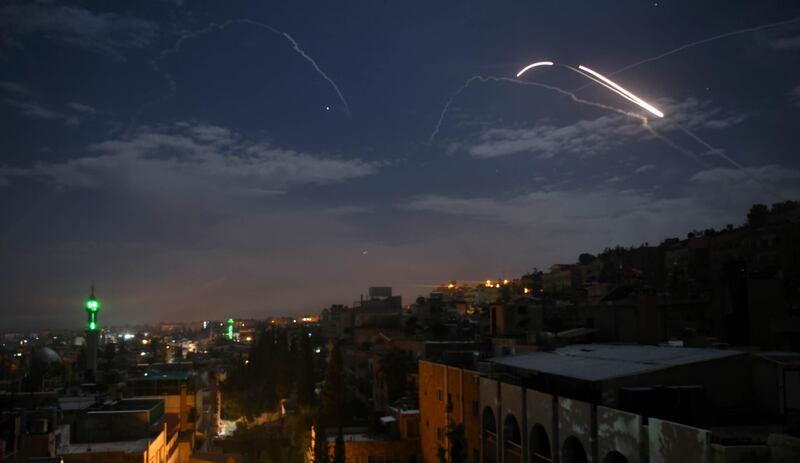With its troops and military infrastructure stationed just 50 kilometres from the Israeli border, Iran is threatening a military confrontation that could further destabilise the region, create a humanitarian catastrophe and send thousands more refugees fleeing for safety. Israel launched air strikes against Iranian military targets inside Syria on Sunday, killing four soldiers and injuring many more.
They came after the Israeli Iron Dome defence system intercepted missiles fired towards the disputed Golan Heights. “You should be afraid of the day that our precision-guided missiles roar and fall on your head,” Iranian Revolutionary Guard Corps commander Mohammad Al Jafari had earlier warned Tel Aviv.
As these pages have repeatedly argued, the myriad actors involved in this intractable war need to view Syria less as an instrument for geopolitical power-building and more in the light of a country torn apart by conflict and which needs to heal.
But one cannot escape the reality that Iranian interference in Syria has increased the prospect of all-out war. And with decades old hostilities and a territorial dispute over the Golan Heights between Israel on one side, and Iran and Syria on the other, the cost and impact of such a conflict on the lives of innocent Syrians would be devastating.
According to Tel Aviv, Israeli strikes targeted an Iranian munitions storage area, a military zone at Damascus International Airport, intelligence headquarters and a military training camp. If true, this infrastructure shows how entrenched Iranian interests have become in the country, in spite of claims by senior military adviser Hassan Firouzabadi last month that Tehran only has an “advisory presence in Syria”.
Today, southern Damascus and the Quneitra region near the Golan Heights are reportedly teeming with Iranian troops, proxy fighters, advanced weaponry and military equipment. With the flawed 2015 Iran nuclear deal liberating billions of dollars for the regime in Tehran, Iran has pushed to establish influence and dominance across the region. Its agents, including Hezbollah in Lebanon and Syria and the Houthi rebels in Yemen, have spread Iranian terror far and wide.
Iran is certainly not alone on Syria’s scorched battlefields. Other powers, including Russia, Turkey and – until it completes Donald Trump’s mooted troop withdrawal – the US, all vie for influence, making a mockery of the idea of any kind of sovereignty.
But Iran bears the greatest responsibility of all for regional destabilisation. In recent years, the tone of Iranian hardliners has sharpened as their influence in Tehran's corridors of power has grown. The international community should heed these latest warnings and troubling developments. A full-scale military confrontation between Iran and Israel, historic foes, is in no one's interests.





